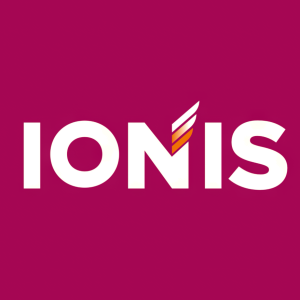Olezarsen receives Orphan Drug designation from U.S. FDA for familial chylomicronemia syndrome
"People living with FCS are in urgent need of a medicine that may help stabilize their triglyceride levels and reduce the risk of life-threatening AP attacks," said Sam Tsimikas, M.D., senior vice president, global cardiovascular development of Ionis. "If approved, olezarsen has the potential to be the standard of care in the
FCS prevents the body from breaking down fats, which can result in fasting triglyceride levels that can range from 10 to 100 times higher than normal levels.1,2 People with FCS are at high risk of AP, or inflammation of the pancreas, which often results in hospitalization and can be life-threatening.3 In severe cases, vital organs such as the heart, lungs, kidneys and pancreas can be damaged.4
Under the FDA's Orphan Drug Act, orphan drug status provides incentives, including tax credits, grants and waiver of certain administrative fees for clinical trials, and seven years of market exclusivity following drug approval.
Olezarsen is an RNA-targeted investigational LIgand Conjugated Antisense (LICA) medicine being evaluated for people at risk of disease due to elevated triglyceride levels, including those with familial chylomicronemia syndrome (FCS). Olezarsen is designed to inhibit the body's production of apoC-III, a protein produced in the liver that regulates triglyceride metabolism in the blood. The
FCS is a rare, genetic disease characterized by extremely elevated triglyceride levels. It is caused by impaired function of the enzyme lipoprotein lipase (LPL). Because of limited LPL production or function, people with FCS cannot effectively break down chylomicrons, lipoprotein particles that are
Currently, there are no
For three decades, Ionis has invented medicines that bring better futures to people with serious diseases. Ionis currently has five marketed medicines and a leading pipeline in neurology, cardiology, and other areas of high patient need. As the pioneer in RNA-targeted medicines, Ionis continues to drive innovation in RNA therapies in addition to advancing new approaches in gene editing. A deep understanding of disease biology and industry-leading technology propels our work, coupled with a passion and urgency to deliver life-changing advances for patients. To learn more about Ionis, visit Ionispharma.com and follow us on X (Twitter) and LinkedIn.
This press release includes forward-looking statements regarding olezarsen, Ionis' business, and the therapeutic and commercial potential of Ionis' commercial medicines, additional medicines in development and technologies. Any statement describing Ionis' goals, expectations, financial or other projections, intentions, or beliefs is a forward-looking statement and should be considered an at-risk statement. Such statements are subject to certain risks and uncertainties, including but not limited to those related to our commercial products and the medicines in our pipeline, and particularly those inherent in the process of discovering, developing and commercializing medicines that are safe and effective for use as human therapeutics, and in the endeavor of building a business around such medicines. Ionis' forward-looking statements also involve assumptions that, if they never materialize or prove correct, could cause its results to differ materially from those expressed or implied by such forward-looking statements. Although Ionis' forward-looking statements reflect the good faith judgment of its management, these statements are based only on facts and factors currently known by Ionis. As a result, you are cautioned not to rely on these forward-looking statements. These and other risks concerning Ionis' programs are described in additional detail in Ionis' annual report on Form 10-K for the year ended Dec. 31, 2022, and most recent Form 10-Q, which are on file with the SEC. Copies of these and other documents are available at www.ionispharma.com.
Ionis Pharmaceuticals® is a registered trademark of Ionis Pharmaceuticals, Inc.
1 Pallazola et al. Eur J Preventive Cardiol 2020 27:2276-2278.
2 Gaudet D, et al. N Engl J Med. 2014;371:2200-2206.
3 Chyzhyk V, Brown AS. Familial chylomicronemia syndrome: A rare but devastating autosomal recessive disorder characterized by refractory hypertriglyceridemia and recurrent pancreatitis. Trends Cardiovasc Med. 2020;30(2):80-5.
4 "Pancreatitis." WebMD. https://www.webmd.com/digestive-disorders/digestive-diseases-pancreatitis.
![]() View original content to download multimedia:https://www.prnewswire.com/news-releases/olezarsen-receives-orphan-drug-designation-from-us-fda-for-familial-chylomicronemia-syndrome-302062413.html
View original content to download multimedia:https://www.prnewswire.com/news-releases/olezarsen-receives-orphan-drug-designation-from-us-fda-for-familial-chylomicronemia-syndrome-302062413.html
SOURCE Ionis Pharmaceuticals, Inc.








